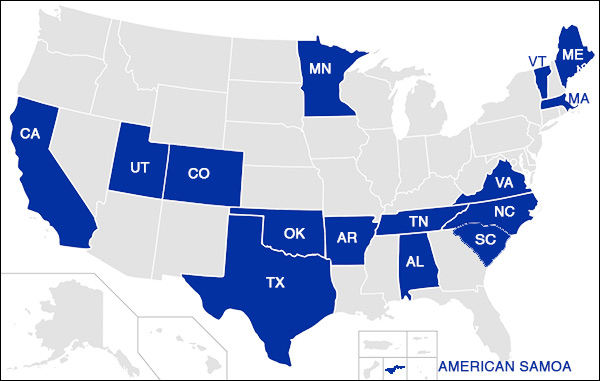
Joe Biden captured the lion’s share of the delegates on Super Tuesday.
By Jim Ellis
March 4, 2020 — Former vice president Joe Biden, with a strong close from his South Carolina victory on Saturday, captured the lion’s share of the delegates on Super Tuesday and has re-established himself as the front-runner for the Democratic presidential nomination.
Biden placed first last night in 10 states, and surprisingly topped the field in Massachusetts and Maine, right in the backyard of Sens. Bernie Sanders (I-VT) and Elizabeth Warren (D-MA). He also placed first in Minnesota where home-state Sen. Amy Klobuchar had been leading. Her endorsement of Biden clearly helped propel him to the top position. In 2016 against Hillary Clinton in Minnesota, Sanders notched a 61 percent win. Last night his popular vote percentage was only 29.9 percent.
Though the former vice president carried the day in 10 states, one still must receive a majority of the delegate votes to win the presidential nomination. He exceeded the 50 percent mark in only two of the states, Alabama and Virginia.
Sen. Sanders, disappointingly for him, placed first in only four states, his home base of Vermont, and California, Colorado, and Utah. Former New York City mayor Michael Bloomberg did very poorly after spending reportedly as much as $700 million from his own fortune. He placed first in America Samoa and qualified for delegates in just eight of the 15 Super Tuesday voting entities. This morning, Bloomberg announced his withdrawal from the race and endorsed Biden.
The Green Papers organization ran full delegate extrapolation tables based upon the preliminary results in both the at-large and congressional district votes. Delegates are earned by exceeding 15 percent in both categories from each state. Totaling all 19 entities that have now voted, Biden would lead the national delegate count with an unofficial 667 bound delegate votes as compared to Sen. Sanders’ 581.
Bloomberg earned only an unofficial 141 delegate total and Sen. Warren just 76. The remaining 34 delegates were split among three others including Rep. Tulsi Gabbard (D-HI) who won a vote yesterday in American Samoa. These numbers will adjust as official vote totals are reported. California, where potentially more than 2 million votes remain to be counted, will substantially alter the totals once the state’s laborious counting process ends in the next several weeks.
Clearly, Biden is the big winner on Super Tuesday, and the night proved very disappointing for Sen. Sanders. Where the race goes now remains to be seen, but Biden winning on the first ballot in Milwaukee at the Democratic National Convention now seems to be the most likely unfolding scenario.
Five states held their full primaries last night and nominees were chosen in many places while run-offs will occur in a number of other situations. Here’s a state-by-state breakdown:
Continue reading



 Jan. 24, 2020 — The second in our three-part series about the in-cycle Senate races covers the 13 contests with June and early August primary dates:
Jan. 24, 2020 — The second in our three-part series about the in-cycle Senate races covers the 13 contests with June and early August primary dates: Gov. Matt Bevin (R), always lagging near the bottom of the 50-state gubernatorial approval polls throughout his term, lost his re-election bid to Democratic Attorney General Andy Beshear.
Gov. Matt Bevin (R), always lagging near the bottom of the 50-state gubernatorial approval polls throughout his term, lost his re-election bid to Democratic Attorney General Andy Beshear. 
